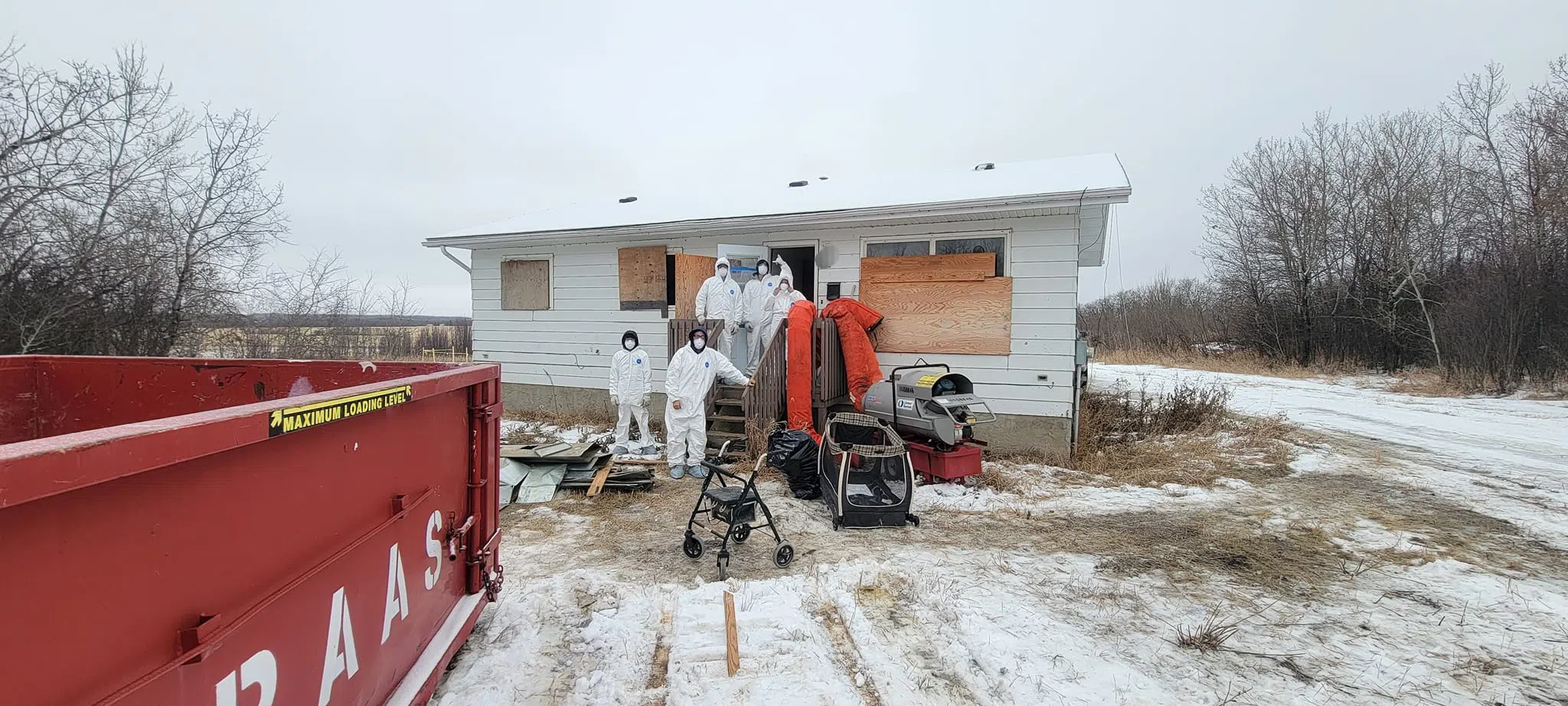
A company offers a partial solution for an ongoing housing issue
A Prince Albert-based businessman believes he can help make homes inhabitable again.
Clarence Natomagan, owner of Meth Busters Inc. works with multiple housing authorities across the province, but would like to work with more First Nations.
He wants to teach communities how to safely clean meth houses themselves.
“I have all the proper technology and solutions that guarantee success every time we walk out of a unit,” said Natomagan. “I’m keen on building capacity with First Nations, to help them become self sufficient.”
What began as something to do to make a living during the pandemic, is now his full-time profession.
“I stumbled into this [business], after hearing how many health impacts meth use in the house [has] on children,” he said.
The more Natomagan learned about cleaning meth houses, the more he realized he was making a difference.
“The meth fumes can stick into the micro crevasses of a wall, paint, and in wood fibres,” he said.
“Scrubbing it off is almost like trying to get permanent marker off a wall.” – Natomagan
Meth or Methamphetamines are a type of amphetamine, which speeds up the body’s central nervous system and is highly addictive.
“It’s at an epidemic level,” said Natomagan. “Young people are using it. Elders are using it. They say all it takes is one hit to really pull you into the addiction.”
According to the Saskatchewan Coroners Service, from 2016 to 2021, there were 551 meth-related deaths and more than half of those deaths were Indigenous peoples.
Last year, the City of Prince Albert was found to have more traces of meth per capita in its wastewater than any other city in Canada, meaning meth is being used in residential households in the area.
On social media several First Nations have resorted to banishing residents suspected of selling or using drugs.
Buildings where meth is used become contaminated by the chemicals, rendering them unsafe for occupancy.
Natomagan believes he can help salvage these homes and make them inhabitable again.
His remediation company deals with the clean-up of households or buildings contaminated by the drug.
Exposure at low levels of meth residue, ingredients, and its by-products may produce headache, nausea, dizziness, and fatigue. At high levels it can produce shortness of breath, coughing, chest pain, dizziness, along with eye and tissue irritation.
“It’s much like cigarette smoke – if you have a five-year smoker in the house, your ceilings and walls start to turn yellow,” said Natomagan. “The house wreaks of smoke. Meth residue is similar.”
The cleaning process, from beginning to end takes four to five days to complete.
First any porous material like fabric curtains and furniture is discarded. Then every part of the house and its contents are cleaned with a special solution called crystal clean and vacuumed with a high efficiency particulate air (HEPA) vacuum. Finally, the house is rinsed and wiped down before being inspected by an agency and deemed safe for living.
Natomagan says the homes he’s cleaned have passed all the safety checks, meaning houses can be salvaged instead of being boarded up, condemned or destroyed.
Meth Busters Inc is a member of Saskatchewan’s Better Business Bureau and can be contacted at 306) 940-8932.

